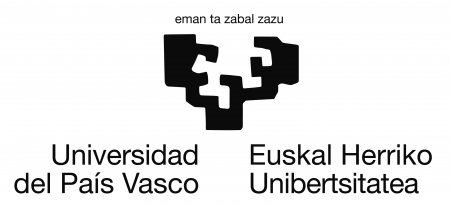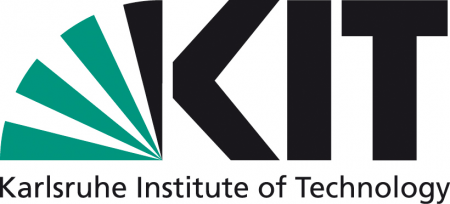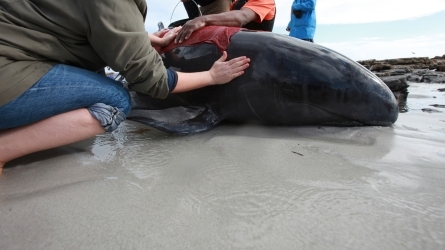
The transformation challenge: Re-Thinking cultures of research
Descripción
Transformation is the present-day topic. Sustainability, climate change, war situations, authoritarianism, many major challenges - and the insight that old recipes, convictions and strategies no longer lead to solutions without difficulty. Also, with regard to science. Science appears relevant but increasingly controversial. Hopes that in knowledge societies, through the spread of knowledge, conflicts would be more easily pacified have been largely disappointed. On the contrary, it is apparent that conflicts that are fought out with the means of scientific knowledge deepen and ambivalences, uncertainty and non-knowledge become much more sharply visible. Science is no longer regarded as an unchallenged problem-solving machine for social problems. Science is disputed. Science is ignored. Science is powerful powerless.
How does this ambivalent positioning of science relate to questions of transformation? “Transformation” conceived as a project and mission (not just seen as evolutionary processes of societal change) is closely linked to the development of science. In order to analyze and shape transformation, the conditions, the varieties and the changes of scientific knowledge production in contemporary societies need to be better understood (e.g., situated, evidence based, transdisciplinary, participatory modes of knowledge production). To give some examples: Firstly, knowledge production is changing from within. New, digital technologies for data collection and evaluation, i.e. in computational science and enabled by AI algorithms are being used to solve complex research tasks. These have the potential to shift fundamental coordinates of scientific knowledge production because questions of limited reproducibility or, for example, non-transparency (e.g. through the use of software; Hocquet 2022) arise. Secondly, new criteria of inclusion, solution and future orientation come into play through new relevance requirements for science, which, as it were, bring a particularistic unrest into the system of knowledge production (e.g., context related and not in generally applicable methodologies and solutions within living labs or anticipatory research and advice practices). Third, debates in post-colonial studies or feminist STS have made and are making questions of standpoint-binding and representation increasingly significant for understanding knowledge production, concerning, for instance, issues such as epistemic injustice, raced-gendered scientific dynamics, or the development of alternative non-Western forms of knowing (Harding 2003; Adams 2019). These multi-layered questions of representation concern not only individuals but also groups or collectives. Pointedly: Do different cultures of “scientificity” (e.g., Carrier 2022) emerge in sectoral and global comparisons? Fourthly, science in transformation is increasingly becoming an engaged science. This seems to shift the balance between distancing and engagement. This can be seen in particular in social innovations such as living labs with citizens, whereby science leaves the special institutional experimental spaces and co-creates research and solutions together with societal actors
The aforementioned indications of problematization can be precisely illuminated through the lens of “cultures of research” To what extent are cultures of research and their legitimizing basis changing and to what extent is their change an expression of transformative changes in society?
ORGANIZING COMMITTEE
- Stefan Böschen (RWTH/Käte Hamburger Kolleg Cultures of Research)
- Andoni Ibarra (UPV/EHU)
- Bettina‐Johanna Krings (ITAS/KIT)
- Andreas Lösch (ITAS/KIT)
- Hannot Rodríguez (UPV/EHU)
Objetivos
The aim of the Summer School is to explore these interrelationships. The following strands can be identified, without limiting the exchange to them:
- Transformation of science: What changes are emerging within science itself and how can these be characterized as changes in cultures of research?
- Transformation through science: Science is a major driver of transformation, what phenomena and examples can be used to illustrate this?
- Science in the midst of transformation: Social change is seen as an essential strand of solutions in so-called “grand challenges”. Which forms of transformation go hand in hand with which forms of science?
Overall: How do these strands of transformation interact with each other? Do different varieties of science emerge depending on where problem-solving processes take place? What does this implicate for the transformative challenge of and for science on an interregional, international global and intercultural scale?
Público objetivo al que está dirigida la actividad
- Alumnado universitario
- Estudiantes no universitarios
Organiza
Colabora
Directoras/es
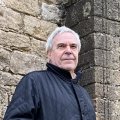
Andoni Ibarra
Universidad del País Vasco, UPV/EHU, Department of Logic and Philosophy of Science
Andoni Ibarra is Professor of Philosophy of Science at the University of the Basque Country (UPV/EHU). He is also the Principal Investigator of PRAXIS Research Group, the founder of the Miguel Sánchez-Mazas Chair, which main goal is to promote Science, Technology and Innovation Studies; He is the Editor-in-Chief of Theoria. An International Journal for Theory, History and Foundations of Science. Andoni’s main line of research is on the performative character of scientific representations in the constitution of the world. More particularly, he has focused on offering concepts of representation not reduced to structural preservation, the relational perspectives for assessment of science and technology based on the connectivity of their practices, the articulation between different types of knowledge in the interaction knowledge-communication-interculturality and, in recent years, on the inclusivity of actors in the governance of responsible innovation as well as on the epistemology of anticipation.

Scientific Degree: Master of Art, M.A. in Political Sciences (Heidelberg, 1990); PhD (Dr.phil.) in Sociology (Frankfurt a. M., 2015) Previous Positions: Scientific Referee at the German Foundation of the International Development (1991-1992); Scientific Referee at the Ministry of Cultural Affairs in Buenos Aires, Argentina (1992-1994); Scientist at Institute of Technology Assessment and Systems Analysis (ITAS), Karlsruhe Institute of Technology (KIT) (since 1995); Senior Scientist at ITAS (since 2005) 2009-2019: Head of Research Department (firstly, deputy head): Knowledge Society and Knowledge Politics and ITAS (KIT); Since 2020: Responsable coordinator for teaching "Technology Assessment" at KIT; Speaker of the topic: Work and Technology at ITAS (since 2009) Deputy Speaker of the Topic: Technology and Work in the KIT Program “Humans and Technology” (since 2014)
Ponentes
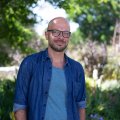
Caniglia Guido
Guido’s research aims to contribute to the development of new collaborative research approaches in sustainability science, variously defined as transdisciplinary sustainability research and knowledge co-production. He deals with interrelated epistemological, methodological, and ethical questions that emerge in these approaches. Guido develops his work in collaboration with interdisciplinary researchers from the natural and social sciences. Since 2018, Guido is the Scientific Director of the Konrad Lorenz Institute for Evolution and Cognition Research in Klosterneuburg (Austria). Previously he held a Marie-Curie post-doctoral fellowship in the Faculty of Sustainability at Leuphana University of Lüneburg. He earned a PhD in Philosophy from the University of Florence (Italy) in 2010 while working in academic communities in Italy, Germany, Spain, and the United States. In January 2016 Guido obtained a second PhD in Biology, from the Center for Biology and Society at Arizona State University (USA). From 2011 to January 2016 he also worked in the Global Classroom Project, a transnational partnership between Arizona State University and Leuphana University engaging in curriculum reform for higher education for sustainable development.

Helen Longino
Helen Longino is C. I. Lewis Professor in Philosophy, emerita, at Stanford University and a Fellow of the American Academy of Arts and Sciences. Her teaching and research interests are in philosophy of science, social epistemology, and feminist philosophy. In addition to many articles, Longino is the author of Science As Social Knowledge (Princeton University Press, 1990), The Fate of Knowledge (Princeton University Press, 2001), both of which explore the social character of scientific knowledge, and Studying Human Behavior, a study of the relationship between logical, epistemological, and social aspects of behavioral research (University of Chicago Press, 2013). Her current research includes a study of the role of conceptions of scientific knowledge influencing agricultural development and an in depth study of the concept of interaction in science and philosophy.

Clark Miller
Clark A. Miller is a theorist and designer of techno-human futures in the School for the Future of Innovation in Society at Arizona State University, where he is Professor and Director of the Center for Energy & Society. His work explores how the decarbonization of the global economy can be leveraged as an instrument of human progress and uplift at this critical moment in history. He served on the US National Academies committee on accelerating decarbonization in the United States; advises cities, communities, utilities, and national laboratories on advancing energy and environmental justice; and was a juror for the Land Art Generator Initiative’s 2022 Beautiful Forms of Energy competition. His writings include Accelerating Decarbonization of the United States (2023), Pathways to a Carbon Neutral Arizona Economy (2022), Cities of Light (2021), The Weight of Light (2019), Designing Knowledge (2018), Science and Democracy (2015), The Handbook of Science & Technology Studies (2015), The Practices of Global Ethics (2015), Nanotechnology, the Brain, and the Future (2013), Arizona’s Energy Future (2011), and Changing the Atmosphere: Expert Knowledge and Environmental Governance (2001). His holds a BS and PhD in electrical engineering.

Harald Rohracher
Harald Rohracher is Professor of Technology and Social Change at Linköping University, Department of Thematic Studies, since 2012. He has been co-founder and director of the Inter-University Research Centre for Technology, Work and Culture (IFZ), Graz, Austria (1999-2007), Joseph A. Schumpeter Fellow at Harvard University (2009-10) and Simon Visiting Professor at Manchester University (2013). In his research he is interested in the governance of transformative socio-technical change, innovation policy, and urban low-carbon transitions.
Precios matrícula
| Matrícula | Hasta 30-06-2024 |
|---|---|
| 0 EUR |
Lugar
Palacio Miramar
Pº de Miraconcha nº 48. Donostia / San Sebastián
Gipuzkoa
Palacio Miramar
Pº de Miraconcha nº 48. Donostia / San Sebastián
Gipuzkoa
